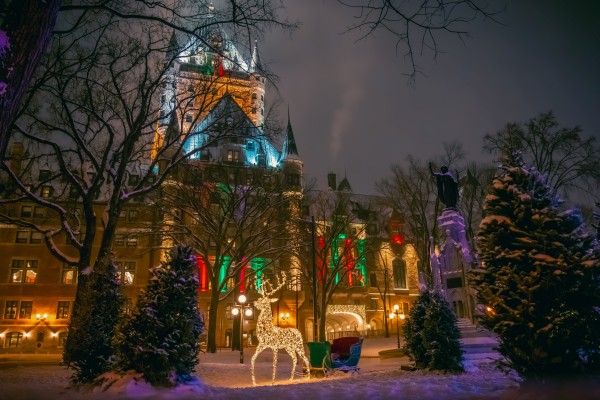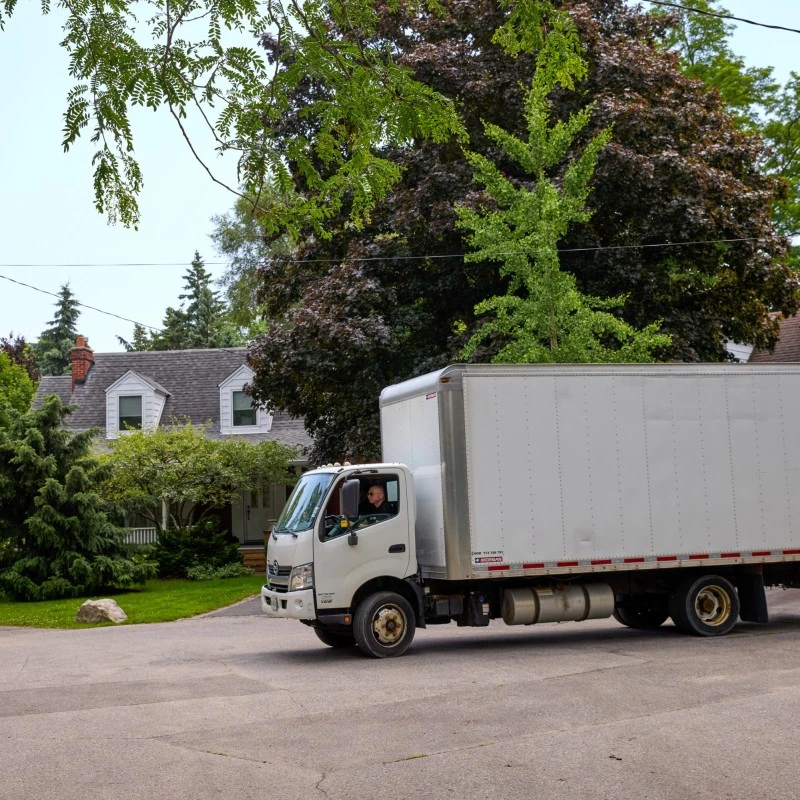
Canada’s holidays reflect the nation’s values, history and diversity. If you live in Canada or are considering a move, it’s important to learn about the significance of Canadian holidays and also to know your rights as an employee.
Having such a diverse mix of cultures in one country, many outsiders ask, “does Canada even have its own culture and traditions?” The answer is yes–there are some things that add distinction to Canada’s national culture.
Public holiday celebrations are a big part of modern Canadian culture and it’s crucial to familiarise yourself with these special days. Much of Canada is populated by First Nations and other cultures, and each culture has its own holidays as well. Learning about these holidays contributes to harmonious living in Canada.
Canada has 12 national and 10 provincial public holidays throughout the year.
These holidays exist to commemorate important events in Canadian history, to honour cultural traditions, and to allow citizens time off work to celebrate with loved ones. Keep reading to find out everything you need to know about Canada’s official holidays, from New Year’s Day to Boxing Day.
How do public holidays work in Canada?
Canada’s public holidays are known as statutory holidays, sometimes referred to as “stats”. Many of these holidays are celebrated nationwide, while some are only acknowledged on a provincial and territorial level.
School systems and many employers provide extra days off during Christmas time, sometimes even for a full week between Christmas and New Year’s Day. Spring break in March means that all schools nationwide are closed for a full week. This holiday is often used as an opportunity for families to take a vacation. Summer break lasts from the end of June until Labour Day in September, giving students a break from studies and time to enjoy the warm summer months.
There are also a handful of notable holidays that aren't considered “official” such as Valentine’s Day, Halloween, Mother’s Day and Father’s Day. These special days don’t necessarily mean time off work, but they are still enthusiastically celebrated as a part of modern Canadian culture.
A Day to Honour Canada’s First Nations
Canada’s National Day for Truth and Reconciliation was created to recognise and remember the atrocious experiences of indigenous people, particularly those who attended residential schools. This important holiday officially takes place on September 30th each year, and the first National Day for Truth and Reconciliation was observed in 2021.
The Truth and Reconciliation Commission (TRC) called for the creation of this holiday as one of the 94 calls to action to address the harms inflicted on Indigenous communities through the residential school system.
The holiday serves to honour survivors and educate non-indigenous Canadians and the whole world about the intergenerational impacts of residential schools, and the ongoing process of reconciliation between Indigenous and non-Indigenous peoples in Canada.
Canada’s First Nations have their own traditional holiday celebrations such as summer solstice on the longest day of the year, June 21st, and winter solstice on the shortest day, December 21st.
Public holidays to celebrate in 2025
There are 12 national holidays and 10 regional holidays in Canada.
National public holidays
- New Year's Day - Wednesday, January 1st - This holiday marks the beginning of the calendar year and the night before is often celebrated by parties and a midnight countdown.
- Good Friday - Friday, April 18th
- Easter Monday - Monday, April 21st - Children look forward to Easter as it is usually celebrated with a chocolate egg hunt.
- Victoria Day - Monday, May 19th
- Canada Day - Tuesday, July 1st - Canada’s birthday is often celebrated outdoors with many towns and cities providing exciting fireworks displays.
- Civic/Provincial Holiday - A day to celebrate each province individually on Monday, August 4th (excluding Quebec)
- Labour Day - Monday, September 1st - Labour day honours the workers of Canada and marks the end of summer break and the first day of the school year.
- National Day for Truth and Reconciliation - Tuesday, September 30th - See the above paragraph on honouring Canada’s First Nations.
- Thanksgiving Day - Tuesday, October 13th - This celebration of harvest abundance often involves sharing a big turkey feast and seasonal side dishes in the company of loved ones.
- Remembrance Day - Tuesday, November 11th - Remembrance Day is for honouring the soldiers of World War 1 who died in the line of duty. Canadians wear a red poppy pin over their heart, for up to a week before November 11 - a reference to the blood-red poppies that grew among the graves of the soldiers.
- Christmas Day - Thursday, December 25th - Gift-giving, feasting, decorative lights and family togetherness is what makes up this global holiday that was originally borne from an ancient pagan holiday celebrating the return of the sun and longer days.
- Boxing Day - Friday, December 26th - On this commercial holiday, many businesses and corporations offer items and products at a major discount and crowds swarm the stores to find hot deals.
Regional Public Holidays
- Islander Day - Monday, February 17th
- Family Day - Monday, February 17th
- Heritage Day - Monday, February 17th
- Louis Riel Day - Monday, February 17th
- St. Patrick’s Day - Monday, March 17th
- St. George’s Day - Monday, April 21st
- Victoria Day - Monday, May 19th
- National Indigenous People’s Day - Saturday, June 21st
- Fête National (Jean Baptiste) Day - Tuesday, June 24th
- Discovery Day - Tuesday, June 24 (NL), Monday, August 18th (YK)
Recognising the holidays of Canada’s diverse cultures

People from all over the world call Canada home, and that’s what makes this country so special. Acknowledging and learning about the holidays of Canada’s distinct cultures encourages respect and appreciation for diversity. Some of these celebrations include:
- Diwali - Hindus make up almost a quarter of Canada’s population, and their biggest festival is Diwali, the festival of lights. Diwali is particularly associated with Lakshmi, the Hindu goddess of prosperity. The festival symbolises the spiritual victory of light over darkness, good over evil, and knowledge over ignorance.
- Bodhi Day - This Buddhist holiday falls on different days depending on the calendar of specific sects of Buddhism. The celebration recognises the Buddha’s awakening and enlightenment, achieved under the Bodhi Tree in India. On this day Bhuddists decorate ficus trees with colourful lights which symbolise interconnectedness and the many different paths to Nirvana.
- Hanukkah - The Jewish festival of lights happens at the end of December and honours the purification and rededication of the Temple by the Maccabees after the Jewish people defeated the Greek Syrians in 165 BC. Throughout the battle, the Temple’s candelabrum burned for 8 days and nights, despite only having enough oil for one day. This miracle is commemorated through the ceremonial lighting of the 8 candles of the menorah–one for each day of the festival.
- Chinese New Year - This holiday happens in either January, February or March on a new moon. Chinese New Year technically lasts for 16 days and consists of three parts: “Little Year”, “Spring Festival”, and “Lantern Festival”. Chinese New Year marks the beginning of the year and the transition between the signs of the Chinese Zodiac.
How do statutory holidays affect employees?

Many Canadians get to enjoy a day off from work on statutory holidays. Those that do have to work are entitled to holiday or premium pay for that day. Eligible employers are entitled to receive compensation on designated holidays. The criteria for eligibility varies and often includes factors such as how long the employee has worked at the establishment and the extent of their regular work schedule.
Those that don’t work on a stat holiday typically receive a paid day off. Those who are required to work on a holiday may receive premium pay such as “time and a half” (their hourly wage multiplied by 1.5) or “double time” (double their hourly wage).
Are shops open on public holidays?
This depends on the individual laws of the province or territory. Some provinces have restrictions on retail stores, requiring certain types of businesses to close or limit their operating hours. Certain types of businesses have exceptions or exemptions. Pharmacies, restaurants and convenience stores usually remain open.
Regulations often differ between rural and urban areas. Always check local regulations before heading out to shop on a stat holiday.
Does public transit run on public holidays?

Public transition Canada usually operates on a reduced schedule such as a weekend schedule during holidays. The level of service depends on the city, province or transit authority. Major cities tend to maintain some level of public transit on holidays. Always check with the local transit authority or check their website for information on holiday schedules and route changes. Alternative options such as taxis are available every day of the year.
Time to celebrate!
Public holidays are a big part of living in Canada and it’s important to become familiar with the types of celebrations and how they affect your job.
If you're considering a move to Canada, Top Move can help you simplify things by finding affordable rates and the right company to meet your individual moving needs. Let’s plan your move!
What do our customers say?




























